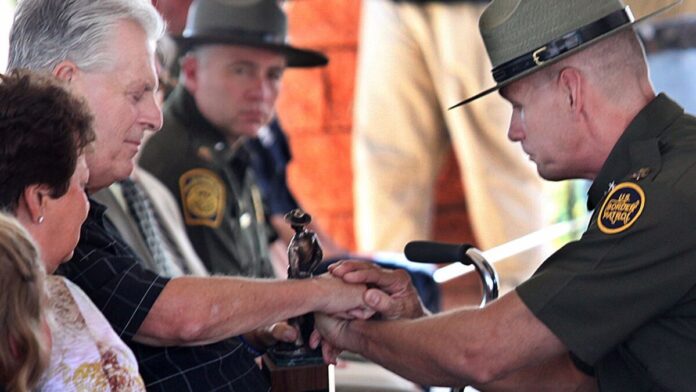The killings of Brian Terry and Juan Francisco Sicilia have highlighted some of the challenging yet serious problems with the War on Drugs that exist at the border between the United States and Mexico. We are now compelled by tragedy to consider how our behavior (or lack thereof) may be escalating the issue.
When attempting to apprehend a weapons trafficker in Arizona, Agent Brian Terry was murdered in a firefight. It was later discovered that the guns found at the site were being sold into the hands of Mexican criminals through ATF’s clandestine operation known as “Operation Fast and Furious.” In truth, John Dodson had alerted superiors about this scheme as early as 2010, but his efforts to stop it were ignored; since then, Congress has questioned Attorney General Eric Holder about it.
The passing of Juan Francisco Sicilia’s son had a significant effect on Mexico and sparked a tsunami of anger over drug violence and what many saw as passivity on the part of the government. This led him to organize large-scale protests across Mexico calling for an end to drug-related murders as well as the Merida Initiative, an arms and training program run by the United States, and the legalization of drugs, views that were also held by former president Vicente Fox and current president Felipe Calderon while he was in office.
Due to its complexity and wide-ranging implications, the seemingly zero-sum outcome between public safety concerns and potential civil rights violations here at home has been extensively discussed; however, there is a need for action — something that can be done right away before more tragedy occurs. The parties involved must work harder to create mechanisms that enable greater communication and cooperation on problems like arms trafficking or undocumented immigration while upholding human rights. With the right legal frameworks in place, we can monitor activities more carefully, spot when laws are abused or international conventions are ignored, and finally make sure that individuals who have suffered due to border violence as a result of the War on Drugs receive justice.
We must listen to the plea of those who have been most harmed by unfair policies, procedures, and implementation techniques linked to this issue if we are to make any headway toward peace along our borders. In order to correct past errors and prevent future tragedies from happening, we must critically evaluate our past actions, both nationally and regionally. Only then will we be able to move forward together toward a brighter future where justice triumphs over injustice along our shared borders for all parties involved?



